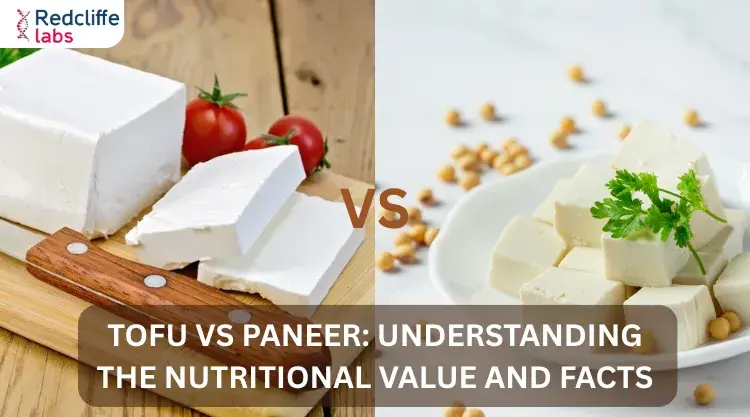5 Foods To Eat and Avoid To Maintain Iron Levels

Medically Reviewed By
Dr Sohini Sengupta
Written By Meenakshi
on May 4, 2024
Last Edit Made By Meenakshi
on Jul 19, 2025

Iron is the most crucial mineral your body needs to keep your well-being intake.
But do you know that despite being an important mineral, many people lack it, and Iron Deficiency is one of the most common nutritional deficiencies globally?
Iron is important in all aspects, from being responsible for natural growth and development to being a crucial component of red blood cell production.
So, does your body have enough Iron?
How do we know whether we have enough Iron or not?
Fret not!
Look below to learn all about iron deficiency, its symptoms, and ways to maintain healthy levels.
So, let's get started.
Your Body May Give You The Following Symptoms If You Lack Sufficient Iron:
- Tiredness: Too much fatigue, despite full rest, is one of the common symptoms associated with an imbalance in iron levels and could indicate iron deficiency.
- Weakness: The prolonged lethargy can sometimes lead to unexplained weakness, headache, or dizziness.
- Heart Palpitations: Low iron levels can lower the hemoglobin levels, putting extra strain on the heart and leading to noticeable heartbeats or heart palpitations.
- Shortness of breath: When your body lacks Iron, it may influence your normal breathing patterns and lead to breathlessness.
- Pale Skin: Low iron levels can also lead to noticeable pale skin and cold hands and feet, which must be diagnosed or evaluated properly to confirm the cause.
- Abnormal Cravings: Yes, it may sound weird, but people with iron deficiency may develop cravings for unusual things like ice, dirt, paper, or chalk.
Low Iron Levels can influence our health in so many ways; therefore, if you have been diagnosed with Iron Deficiency, it is essential to manage it in time.
Luckily, managing Iron levels is easy and can be done with simple dietary changes.
So, let's find out what they are.
5 Foods To Eat If You Have Iron Deficiency:
- Spinach:
Almost all the 90s kids have grown up seeing 'Popeye the Sailor Man' and his secret of strength and energy Spinach. It is no shocker that it is on top of the list.
It is said that even 100 grams of raw Spinach contains around 2.7 mg of Iron and is also a good source of Vitamin C, which aids the body in absorbing Iron appropriately.
If your iron levels are low, you must incorporate Spinach and other green leafy vegetables into your diet.
- Legumes:
Beans, Lentils, Peas, and Soybeans are some common Legumes that are packed with Iron. They are a great option for vegetarians to fulfill their iron needs. In addition, Legumes, being plant-based proteins, are not just high in Iron but also in fiber and minerals and can be a heart-healthy swap for those looking to cope with iron deficiency.
Important Tip: Couple Legumes with foods high in Vitamin C to increase iron absorption.
- Nuts:
Your parents or grandparents must have told you to have a handful of nuts daily, and why not? They are full of nutrients, vitamins, and Iron, of course.
While all nuts and seeds, including Cashews, Almonds, Hazelnuts, Pine Nuts, Walnuts, and Peanuts, are the best, Pistachios are among the heroes. One ounce of pistachios can provide around 6.1 % of the required daily Iron.
These small tiny seeds are highly significant and can fulfill your daily dose of Iron. Not only are they a good source of Iron, but they also come with the goodness of Vitamin K, Zinc, and Magnesium. Plus, they are super delicious and portable to carry wherever they go. You can incorporate them into your diet in varied ways, and their crunchy taste and nutritional value will not make you regret your decision.
- Eggs:
If you are an egg lover, you'll be over the moon to know that eggs can help you beat your Iron deficiency. Known for their high protein value, Eggs are also packed with a good amount of Iron, making them a great go-to choice for meeting your iron-related needs.
It is easy to balance your Iron needs with the right dietary choices. So, be mindful and switch to an iron-rich diet.
While many foods can meet your daily Iron needs, certain foods can affect the results and should be avoided. These are discussed below in the points.
5 Foods To Avoid When You Have Iron Deficiency:
- Dairy Products:
Dairy Products may be good for calcium but are not a good source of Iron. The calcium in dairy products can also interfere with and influence the body's ability to absorb Iron. Avoiding it altogether is not advisable, but if you have Iron Deficiency, limiting the intake and following your doctor's advice is a must.
- Tea And Coffee:
If a cup of tea or coffee is your first choice whenever you feel tired, you need to ditch the habit, as it may be screwing with your iron levels. Excessive intake of coffee or tea can interrupt your body's ability to consume Iron, leading to iron deficiency. Its intake in moderation should be in your mind to boost their levels.
- Avoid Alcohol Consumption:
Not only iron deficiency but alcohol can worsen almost all health conditions and must be avoided. It can affect how Iron is absorbed from food, leading to Iron and other nutrient deficiencies.
- Gluten:
Foods high in gluten are a big no for those with iron deficiency, as they can damage the intestinal wall and prevent iron absorption, which is essential for several bodily functions.
- Avoid Tannins:
If you are new to the term, you are not alone. But fear not, as we are here to help you understand it well. These are soluble polyphenols present in many plant foods. They can interfere with the absorption of many minerals, including Iron, calcium, and zinc, leading to deficiency and other health issues. So, if you already have low iron levels, you should avoid such foods.
Besides eating healthy, leading an active lifestyle and taking medications as prescribed on time can be a game-changer for your health.
Last but not least, to balance your Iron levels, you first need to know their status, and a routine Iron Test is therefore recommended.
Know Your Iron Status With Iron Test With Redcliffe Labs
An Iron Test can help measure iron levels in the body, monitor any deficiency, and allow early intervention for effective management. So, skip the unnecessary delay and get to know the status of your iron levels with an Iron Studies Test from Redcliffe Labs today. With the trust of 50,000+ doctors, we promise accuracy in the test results. So, book your test now.
Remember, Iron is important for your health. So, take charge of any changes in their levels.



